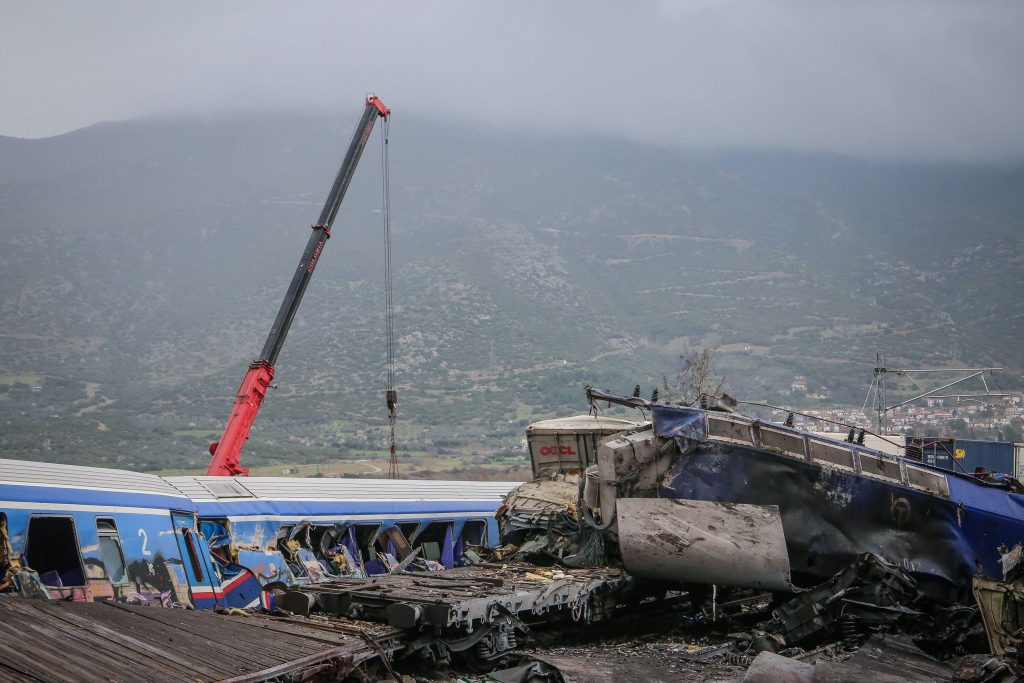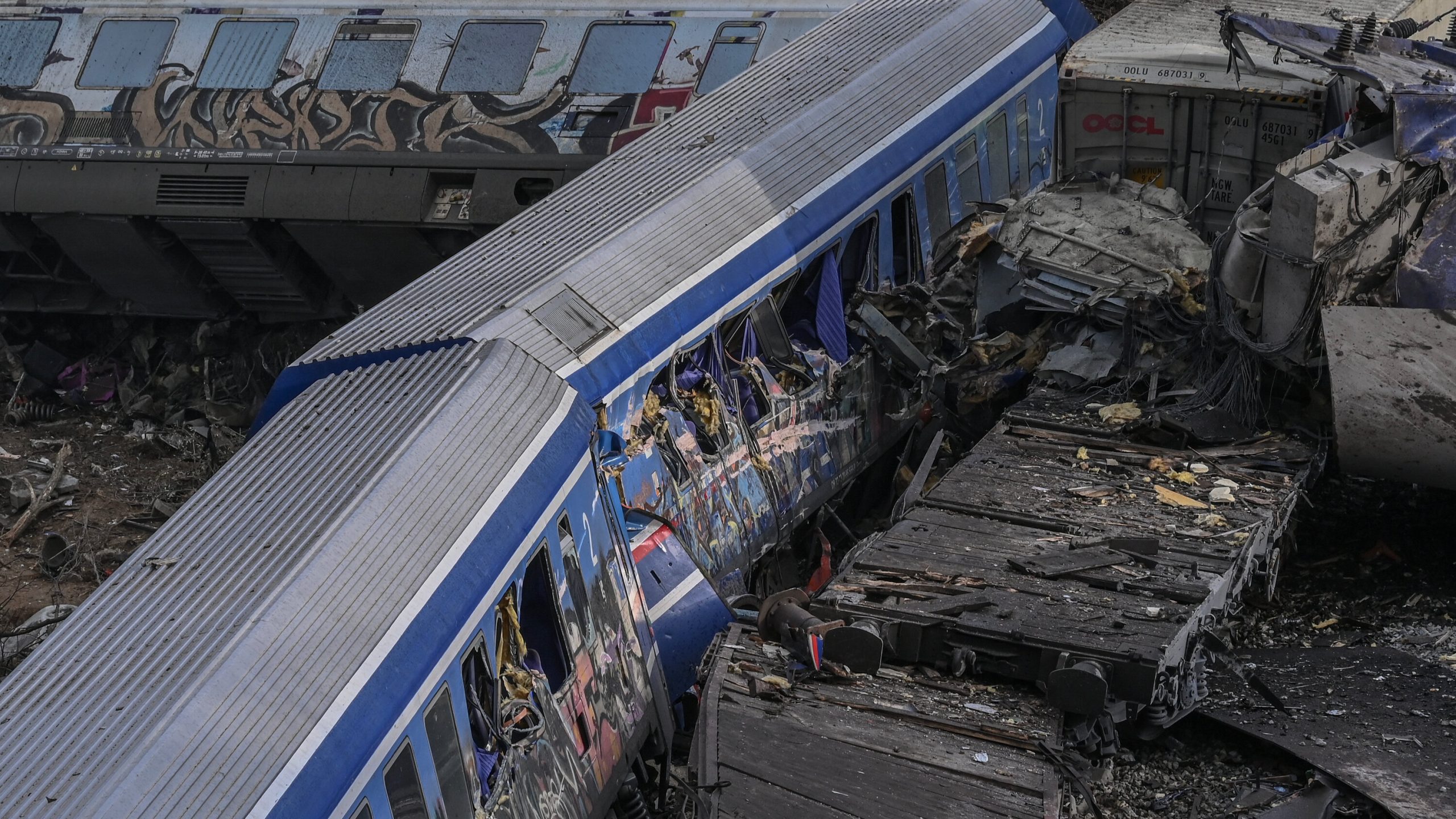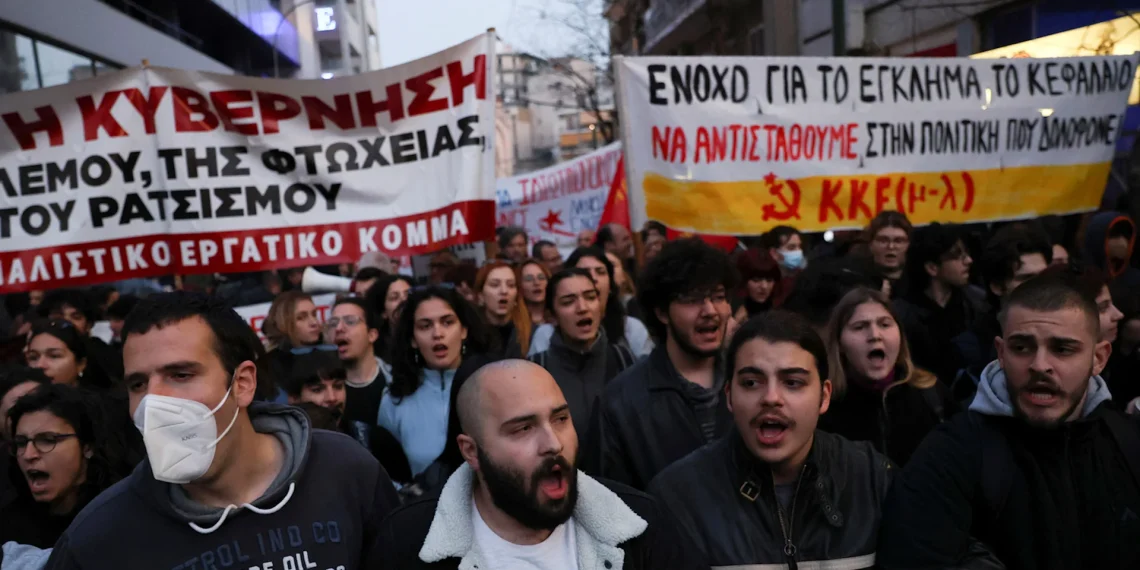Following Greece‘s deadliest train accident a year ago, which claimed 57 lives, the government pledged to address long-standing issues plaguing the railway system. Prime Minister Kyriakos Mitsotakis vowed to prioritize safety enhancements in response to the tragedy.
However, a year later, experts and officials expressed concerns over the lack of significant progress in improving railway safety.
Critical safety measures mandated by European Union regulations, such as remote train control and communication systems, remain inactive.

The shortage of railway staff since the accident, coupled with delays in implementing reforms within Greece’s fragmented railway management, has hindered advancements. Despite promises of comprehensive plans to revamp the railway, little tangible improvement has been observed.
The situation is exacerbated by the decline in staff numbers at the main rail operator and the absence of necessary training for existing personnel. While the government asserts progress in upgrading safety measures, challenges persist due to extensive flood damage and bureaucratic obstacles.
Greece’s railway system, already in decline for over a decade, faces an uphill battle to regain stability and ensure passenger safety. The lack of activation of crucial safety systems, including ETCS and GSM-R, underscores systemic deficiencies that contributed to the tragic accident.
The EU Agency for Railways highlights Greece’s failure to fully implement EU regulations and the absence of a centralized entity overseeing railway safety.

Survivors and families of victims continue to demand accountability and systemic reforms. With post-traumatic stress and ongoing nightmares, they emphasize the importance of addressing the root causes of the accident.
While efforts to merge railway entities aim to streamline administration, challenges persist in restoring public trust and ensuring the safety of railway passengers.





